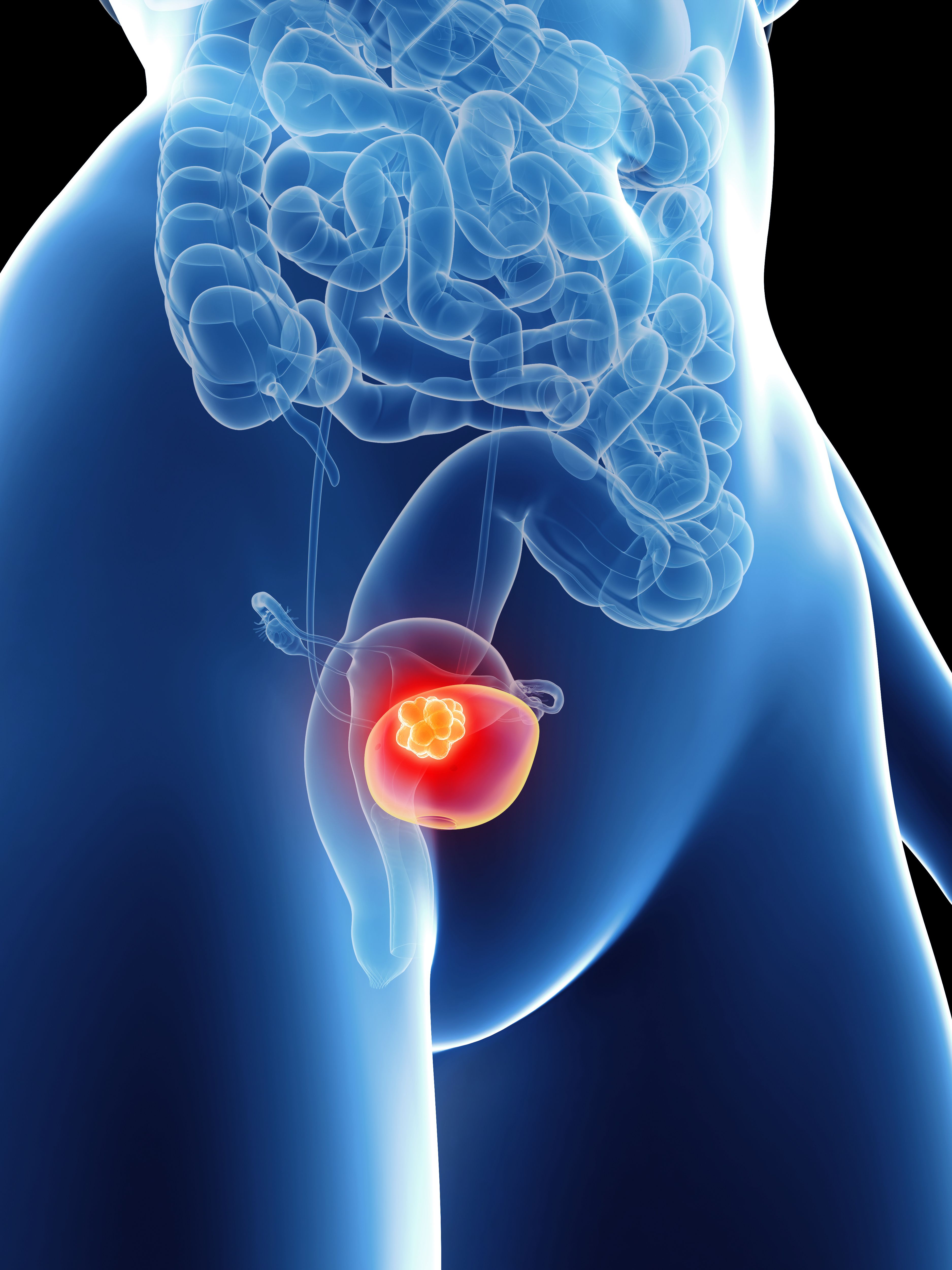Stable Health, Function in BCG-Unresponsive NMIBC With N-803 Plus BCG
Available data on patient-reported outcomes and positive interim results from QUILT 3.032 support N-803 for patients with Bacillus Calmette-Guérin-unresponsive non-muscle-invasive bladder cancer.
womans bladder cancer: © vitanovski - stock.adobe.com

Patient-reported outcomes (PROs) of those with Bacillus Calmette-Guérin (BCG)-unresponsive non-muscle invasive bladder cancer (NMIBC) carcinoma in situ (CIS; cohort A) or papillary disease (cohort B) in the phase 2/3 QUILT 3.032 study (NCT03022825) of N-803 plus BCG who completed PRO questionnaires and reached month 24 on-study showed stability of physical function and global health stable over the 2-year course.1
At a data cutoff date of May 16, 2022, the published PROs showed that overall, patients in cohort A and B who reached month 24 on-study and also completed an NMIBC-specific questionnaire about the challenges of bladder cancer, also reported no decline of their health or urinary tract-related symptoms while in the study. By month 6, patients who reached complete responses (CR) with the combination of BCG and N-803 also had better physical function compared with those who did not reach a CR.
These results from the PROs analysis support the positive interim findings from the phase 2/3 QUILT 3.032 study which were previously published in NEJM Evidence. Further, these data support the safety and tolerability of the combination as a potential new treatment option for patients with BCG-unresponsive bladder cancer.
“The self-reported stability of health and physical function over the course of the study by the participants reflect another aspect of safety and tolerability of this new combination therapy,” said Patrick Soon-Shiong, MD, executive chairman and global chief scientific and medical officer at ImmunityBio, in a press release. “Taken together with the positive response rate in cohort A of over 70%, the persistence of responses and cystectomy avoidance, these QoL findings suggest a favorable risk-benefit ratio for this potential new therapeutic option for patients with BCG-unresponsive bladder cancer.”
Prior findings from the phase 2/3 study showed that 71% of patients in cohort A with CIS with or without Ta/T1 disease achieved a CR, and the median duration of response was 26.6 months.2 The cystectomy avoidance rate was 89.2%, and the 24-month bladder cancer overall survival rate was 100%.
The combination also yielded a favorable safety profile with no serious adverse events reported, supporting a favorable risk-benefit ratio for N-803 plus BCG in this patient population.1
QUILT 3.032 is an open-label, single-arm, multicenter, phase 2/3 trial which enrolled patients with persistent or recurrent CIS within 12 months of undergoing adequate treatment with BCG (cohort A) or papillary recurrent high-grade Ta-T1 disease within 6 months of finishing adequate treatment with BCG. Patients were treated with BCG 50 mg plus 400 μg of intravesical N-803 every week for 6 weeks or reinduction for 6 weeks plus maintenance up to a maximum of 3 years.2
The primary end point of cohort A was biopsy-confirmed CR at 3 or 6 months. In cohort B, the primary end point was disease-free rate at 12 months. Secondary end points of the study included the duration of CR, cystectomy avoidance, time to cystectomy, and safety.
A biologics license application for N-803 plus BCG for the treatment of NMIBC CIS was submitted and currently being reviewed by the FDA. The Prescription Drug User Fee Act date has been set for April 23, 2024.
REFERENCES:
ImmunityBio quality-of-life study in BCG-unresponsive bladder cancer trial indicates improved physical function in the 71% complete responders suggesting a favorable risk-benefit ratio for N-803 plus BCG. News release. ImmunityBio, Inc. February 5, 2024. Accessed February 6, 2024. http://tinyurl.com/4z7bkact
Chamie K, Chang S, Gonzalgo M, et al. FFinal clinical results of pivotal trial of IL-15RαFc superagonist N-803 with BCG in BCG-unresponsive CIS and papillary nonmuscle-invasive bladder cancer (NMIBC). Presented at: 2022 American Society of Clinical Oncology Annual Meeting; June 2-6, 2022; virtual. Abstract 4508.